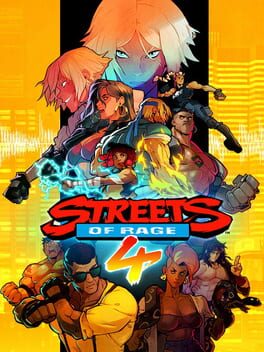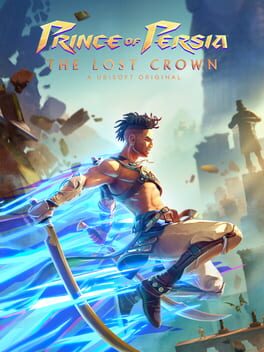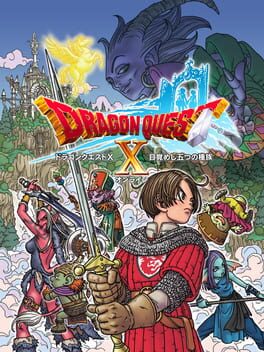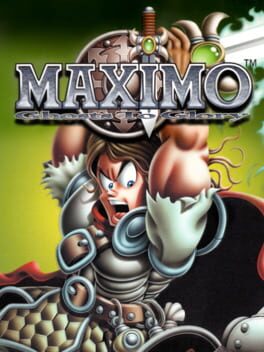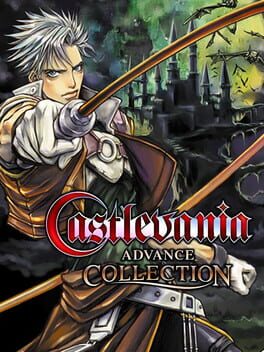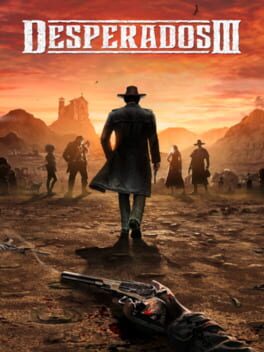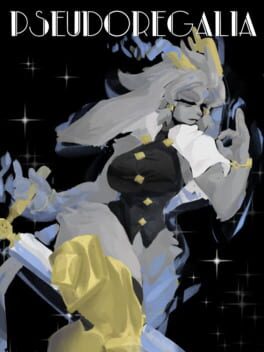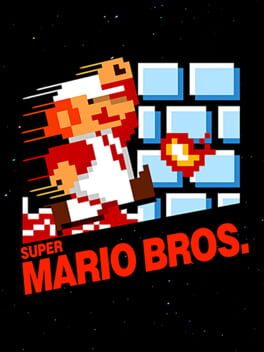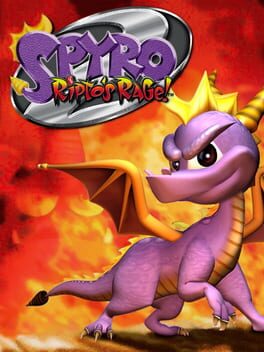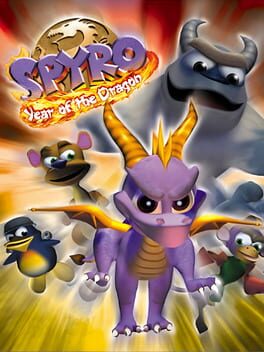ProudLittleSeal
3767 Reviews liked by ProudLittleSeal
Elden Ring
2022
I deeply appreciate elden ring, but, by the 40 hour mark it ran out of ways to keep me engaged outside of its core, punishing, combat loop.
elden ring marks fromsoft's first foray into the open world genre, and it largely is a success. the audio-visual presentation is brilliant, and the landscapes are striking. but here, unlike the open vistas of say, Breath of the Wild, each step further into the expanse is met with dread. my favorite moment, stepping into a seemingly bottomless well to reach the underworld for the first time, seemed to mark a change in tempo. there was a (simple) puzzle, a beautiful, almost tragic, boss, and an inviting beauty to a dark sky, starlit by the glimmer of cave rocks.
that type of exploration is the exception, not the rule. for most of the journey, you are a hammer, and the world is an excuse to present a series of nails. this singular focus on combat works in more poetic expanses, such as Shadow of the Colossus, but its unerring violence chewed away at the sense of discovery that so enthralled me during its opening hours.
my favorite open world games are ones that encourage discovery and engagement in ways beyond combat. here, the occasional fetch quests and story moments are so obfuscated by wonky design, that it's almost impossible to track unless you're playing with a wikia or a pen and paper in hand. this type of discovery works well in the more staged worlds of Dark Souls and Sekiro, but feels less at home in the massive world of Elden Ring.
elden ring marks fromsoft's first foray into the open world genre, and it largely is a success. the audio-visual presentation is brilliant, and the landscapes are striking. but here, unlike the open vistas of say, Breath of the Wild, each step further into the expanse is met with dread. my favorite moment, stepping into a seemingly bottomless well to reach the underworld for the first time, seemed to mark a change in tempo. there was a (simple) puzzle, a beautiful, almost tragic, boss, and an inviting beauty to a dark sky, starlit by the glimmer of cave rocks.
that type of exploration is the exception, not the rule. for most of the journey, you are a hammer, and the world is an excuse to present a series of nails. this singular focus on combat works in more poetic expanses, such as Shadow of the Colossus, but its unerring violence chewed away at the sense of discovery that so enthralled me during its opening hours.
my favorite open world games are ones that encourage discovery and engagement in ways beyond combat. here, the occasional fetch quests and story moments are so obfuscated by wonky design, that it's almost impossible to track unless you're playing with a wikia or a pen and paper in hand. this type of discovery works well in the more staged worlds of Dark Souls and Sekiro, but feels less at home in the massive world of Elden Ring.
Resident Evil 4
2005
When you think about it, it's kind of a miracle that this game even came out in the first place, after it went through so many radically different prototypes. Not only was it a great game, not only did it spawn other great games from its rejected prototypes; it's one of the greatest games ever designed that not only changed the franchise, survival horror or third person shooters forever, but action games as a whole. And of course, a game as insanely good as this one has never been replicated.
When you come down to it, it basically has just 3 mechanics. Aim and shoot, context-sensitive actions, and item management. If you really wanna stretch it, telling Ashley to stop, hide or follow is the fourth one, but it's too shallow.
Aiming and shooting is the bulk of the game and is unbelievably polished. This is a game in which you aim and shoot to attack enemies, to hit weak points, to get different reactions from the enemy, to get enemies to suddenly transform and become stronger, to deflect projectiles, to trigger explosions, to deactivate traps, to break lamps that ignite enemies, to hunt, to fish, to solve puzzles, to break boxes that contain items, to collect treasures, to do secondary missions, EVEN USING YOUR MELEE KNIFE IS DONE BY AIMING AND PRESSING THE SHOOT BUTTON. Your gun is not just a gun, it's the way you interact with the whole world. The dark part of my brain wonders what an open-world RE4 could be like in the style of BOTW, in which all the weirdo interactions you can do in that game are done exclusively with your guns, but that's another topic.
This is what happens when developers can finally include a feature they couldn't before and they can't stop having fun with all the new stuff they can do with it, using every idea they can think of, and it extends into the level design as well. Very often you find yourself in a completely new wacky scenario to fight monsters in, and once it's done, the game discards it and it presents you with another totally new scenario. Jumping on moving platforms to find switches, fighting on a minecart, sniping enemies from a distance while Ashley operates levers, fighting waves of enemies in a cabin with an ally... I think the only repeated scenarios are cover shooting, which you do once early on and then you get the prompt in one of the last areas, which I didn't even use, and the spiked ceiling, which is used twice.
Everyone talks about how your restricted movement helps to make the fights tense, but the secret that makes the aim-and-shoot mechanic work so well, and why no game has replicated it, is that Leon's aim is unsteady as hell. Aiming alone is part of the challenge, and they barely ever did shooters like that, they only try it sometimes with sniping. This is why you should play it with a controller, at least once, to get the true experience. A mouse will make it too easy, and it's not how the game is meant to be. I think the only other game that did shooting similarly was Metal Gear Solid 2 and 3, which also restricted your movement when aiming in first person, but those were stealth games. Only an action game could take this sort of super-trained special agent, slow and mechanical shooting action gameplay to the limit.
And to top it all off, it has the most charming writing ever. Cheesy American action movie hero written by Japanese video game developers is always a treat, but every single thing said by every single character and enemy is super memorable. They clearly were aware, so they even let you collect bottle caps with little statues of the characters and enemies that play a sound. They should've promoted the game with these in real life! Mikami also clearly fell in love with Dante in Devil May Cry, so he had the genius idea of turning Leon into as close as a human Dante could be like in real life.
Flaws? Uhhh... It's maybe a bit too long. But is that really a flaw when the game is this good? I guess the final boss is lame for a game with such deep combat, although Krauser was amazing, and almost everything you get after him is a victory lap, with Mike at the helicopter and...
No, no, I'm not even gonna analyze it. Shut the fuck up. Game is perfect. 10/10.
When you come down to it, it basically has just 3 mechanics. Aim and shoot, context-sensitive actions, and item management. If you really wanna stretch it, telling Ashley to stop, hide or follow is the fourth one, but it's too shallow.
Aiming and shooting is the bulk of the game and is unbelievably polished. This is a game in which you aim and shoot to attack enemies, to hit weak points, to get different reactions from the enemy, to get enemies to suddenly transform and become stronger, to deflect projectiles, to trigger explosions, to deactivate traps, to break lamps that ignite enemies, to hunt, to fish, to solve puzzles, to break boxes that contain items, to collect treasures, to do secondary missions, EVEN USING YOUR MELEE KNIFE IS DONE BY AIMING AND PRESSING THE SHOOT BUTTON. Your gun is not just a gun, it's the way you interact with the whole world. The dark part of my brain wonders what an open-world RE4 could be like in the style of BOTW, in which all the weirdo interactions you can do in that game are done exclusively with your guns, but that's another topic.
This is what happens when developers can finally include a feature they couldn't before and they can't stop having fun with all the new stuff they can do with it, using every idea they can think of, and it extends into the level design as well. Very often you find yourself in a completely new wacky scenario to fight monsters in, and once it's done, the game discards it and it presents you with another totally new scenario. Jumping on moving platforms to find switches, fighting on a minecart, sniping enemies from a distance while Ashley operates levers, fighting waves of enemies in a cabin with an ally... I think the only repeated scenarios are cover shooting, which you do once early on and then you get the prompt in one of the last areas, which I didn't even use, and the spiked ceiling, which is used twice.
Everyone talks about how your restricted movement helps to make the fights tense, but the secret that makes the aim-and-shoot mechanic work so well, and why no game has replicated it, is that Leon's aim is unsteady as hell. Aiming alone is part of the challenge, and they barely ever did shooters like that, they only try it sometimes with sniping. This is why you should play it with a controller, at least once, to get the true experience. A mouse will make it too easy, and it's not how the game is meant to be. I think the only other game that did shooting similarly was Metal Gear Solid 2 and 3, which also restricted your movement when aiming in first person, but those were stealth games. Only an action game could take this sort of super-trained special agent, slow and mechanical shooting action gameplay to the limit.
And to top it all off, it has the most charming writing ever. Cheesy American action movie hero written by Japanese video game developers is always a treat, but every single thing said by every single character and enemy is super memorable. They clearly were aware, so they even let you collect bottle caps with little statues of the characters and enemies that play a sound. They should've promoted the game with these in real life! Mikami also clearly fell in love with Dante in Devil May Cry, so he had the genius idea of turning Leon into as close as a human Dante could be like in real life.
Flaws? Uhhh... It's maybe a bit too long. But is that really a flaw when the game is this good? I guess the final boss is lame for a game with such deep combat, although Krauser was amazing, and almost everything you get after him is a victory lap, with Mike at the helicopter and...
No, no, I'm not even gonna analyze it. Shut the fuck up. Game is perfect. 10/10.
Streets of Rage 4
2020
This is probably the best take on the retro style of beat em ups without adding more bells and whistles. This is maybe the best IP revival gaming has ever seen. I thought this game literally couldn't get any better... and then the DLC came out with this super snazzy rogue-ish function which lets you really sink your teeth into the combat system and enemy variety; despite the sometimes bullshit hazards.
God damn this game is so good.
God damn this game is so good.
If you'd told me that the year 2024 in gaming would open with a bang with the release of a Metroidvania-style Prince of Persia title made the Ubisoft team behind Rayman Legends, I would have told yeah, sure, I'll get into that. And guess what? Prince of Persia: The Lost Crown is pretty great! It's more Ori and the Will of the Wisps than Metroid Dread, with an emphasis on fluid movement and exploring and ever-growing map, with a bit of combat thrown in for good measure. And of course, the more you explore the more abilities you unlock, leading to further exploration into previously walled-off areas. Initially I'd actually thought the map would prove rather small, but it actually opens into a sprawling series of varied biomes, each with its own secrets and challenges to overcome. All is attached to a story revolving around saving the titular prince which is... fine? It does involve some fun cut scenes that combine a painterly art style with dynamic anime action, but the writing underpinning these sequence is, again, just fine. Serviceable. Other than that, there's a lot to enjoy here, bravo Ubisoft Montpellier.
excellent sequel, pretty much everything from the predecessor has been expanded and improved in every way, the presentation is amazing, the gameplay which allows even more options and approaches such as being able to hang from raillings or hide enemy guards's bodies on a locker, tranquilizer weapons and of course the first-person aiming, it's such an better stealth game than the first game. the story is also somehow even better than the predecessor, playing them back to back was extremely rewarding, the Arsenal Gear section along with the ending might be one of my favorites that I had encountered in an game, it's creepy and unique, the fact that the themes are so relevant today makes it scary.
maybe the only things that I find it better on MGS1 were the antagonists, some of the pacing and the setting, something about Big Shell doens't hit as hard as Shadow Moses did but what we have here is also great.
overall an brilliant game, it's everything an sequel should strive to be, play it.
maybe the only things that I find it better on MGS1 were the antagonists, some of the pacing and the setting, something about Big Shell doens't hit as hard as Shadow Moses did but what we have here is also great.
overall an brilliant game, it's everything an sequel should strive to be, play it.
Metal Gear Solid
1998
very advanced for an 1998 game, the voice-acting, attention to detail and story are ahead of it's time in terms of being an Playstation game, it still holds up if played today with some caveats.
the gameplay is a bit quirky to get through especially when shooting enemies is concerned if not aiming with Snake's pistol but it's simple enough for you to get the hang of it soon enough and it works well once you do, switching items is pretty intuitive, the UI design is also rather good for this time period.
the pacing is excellent, the game never loses steam for an long time, I never felt that the game was too long or too short.
the boss fights range from cool to slightly annoying though, the Tank and Helicopter fights comes to mind. Sniper Wolf, Ocelot, Gray Fox and Psycho Mantis were really good though.
pretty much the only thing that I didn't like about Metal Gear Solid is it's final section, uninspired backtracking take place on an otherwise well-paced game up to that point, the final showdown against Metal Gear and the main villain is also not that good on an gameplay perspective.
overall an brilliant game, it aged really well and it's definitely worth an playthrough, made me excited for the sequel's potential improvements, I will definitely play the GameCube remake when I am done with the rest of the games.
the gameplay is a bit quirky to get through especially when shooting enemies is concerned if not aiming with Snake's pistol but it's simple enough for you to get the hang of it soon enough and it works well once you do, switching items is pretty intuitive, the UI design is also rather good for this time period.
the pacing is excellent, the game never loses steam for an long time, I never felt that the game was too long or too short.
the boss fights range from cool to slightly annoying though, the Tank and Helicopter fights comes to mind. Sniper Wolf, Ocelot, Gray Fox and Psycho Mantis were really good though.
pretty much the only thing that I didn't like about Metal Gear Solid is it's final section, uninspired backtracking take place on an otherwise well-paced game up to that point, the final showdown against Metal Gear and the main villain is also not that good on an gameplay perspective.
overall an brilliant game, it aged really well and it's definitely worth an playthrough, made me excited for the sequel's potential improvements, I will definitely play the GameCube remake when I am done with the rest of the games.
Pretty fun time. It's really just DQ online(for better or worse) and I'm impressed with some of the aspects with the animation, music and presentation. The gameplay was a bit boring at first and think that the mmo structure causes some annoyances but it got more engaging to play as I unlocked more classes, got better gear and got NPC party members(and a friend to play with!). The story definitely feels like the beginning of a overarching story and worldbuilding which has me excited for the other expansions. It's a solid enough story with some pretty cool moments and likable characters albeit its on the short side and found the pacing kinda odd at some parts.
Capcom has made more good games they've forgotten about than most studios have made good games.
The word that kept coming to my mind as I played Maximo was "deliberate". This game forces you to be thoughtful in your actions. You need to be precise in your platforming, as levels rise and crumble around you and platforms roll down rivers like Frogger. Failing a jump often means instant death, although the game is fairly generous with extra lives and continues. There is no manual camera, only a button that will attempt to center the camera behind Maximo. Honestly, this may be because I’m from a time before manual cameras (you merely adopted the dark etc.), but I felt that the camera was generally good at being where I needed it to be. And I love the slight Dutch angle its tilted at, it adds so much to the feel of the world.
Combat is just as deliberate. Your sword bounces off of rock and metal, making Maximo vulnerable for several excruciating milliseconds. Swing at wood, and it takes even longer for him to remove it. The biggest combo is a two-hitter perk you could potentially not keep in your permanent list, and it has a noticeable wait after the 2nd attack, so with multiple enemies approaching performing the combo could leave you open.
Enemies are incredibly varied in the best way to dispatch them. Even the duck button, which seems worthless at first, is crucial to destroy certain enemies without taking damage. There are these pirate enemies that are easy to knock down, but when you ground pound them you will take damage because they’ve been skewered through with a cutlass that is now pointing up. What you need to do is jump over them and knock them down from behind, which allows you to finish them off without getting hurt.
Maximo is full of little decisions like these. Do I tank this attack with my shield or do a ranged shield throw, both of which lower the shield’s durability? The shield is incredibly useful, and when it breaks you’ll be defenseless until you find another one (Maximo’s blacksmiths took Hyrule correspondence courses). Do I do this difficult platforming section to get one of the incredibly powerful temporary sword upgrades? Do I use one of my keys to unlock a gate or chest, or save them for later?
All of this adds up to a game that I enjoyed so much I beat it in a fever rush of two days. And after playing the first level of the sequel, it turns out they removed everything that made the first game work in order to make something that plays like… (checks notes) MediEvil? That can’t be right?
The word that kept coming to my mind as I played Maximo was "deliberate". This game forces you to be thoughtful in your actions. You need to be precise in your platforming, as levels rise and crumble around you and platforms roll down rivers like Frogger. Failing a jump often means instant death, although the game is fairly generous with extra lives and continues. There is no manual camera, only a button that will attempt to center the camera behind Maximo. Honestly, this may be because I’m from a time before manual cameras (you merely adopted the dark etc.), but I felt that the camera was generally good at being where I needed it to be. And I love the slight Dutch angle its tilted at, it adds so much to the feel of the world.
Combat is just as deliberate. Your sword bounces off of rock and metal, making Maximo vulnerable for several excruciating milliseconds. Swing at wood, and it takes even longer for him to remove it. The biggest combo is a two-hitter perk you could potentially not keep in your permanent list, and it has a noticeable wait after the 2nd attack, so with multiple enemies approaching performing the combo could leave you open.
Enemies are incredibly varied in the best way to dispatch them. Even the duck button, which seems worthless at first, is crucial to destroy certain enemies without taking damage. There are these pirate enemies that are easy to knock down, but when you ground pound them you will take damage because they’ve been skewered through with a cutlass that is now pointing up. What you need to do is jump over them and knock them down from behind, which allows you to finish them off without getting hurt.
Maximo is full of little decisions like these. Do I tank this attack with my shield or do a ranged shield throw, both of which lower the shield’s durability? The shield is incredibly useful, and when it breaks you’ll be defenseless until you find another one (Maximo’s blacksmiths took Hyrule correspondence courses). Do I do this difficult platforming section to get one of the incredibly powerful temporary sword upgrades? Do I use one of my keys to unlock a gate or chest, or save them for later?
All of this adds up to a game that I enjoyed so much I beat it in a fever rush of two days. And after playing the first level of the sequel, it turns out they removed everything that made the first game work in order to make something that plays like… (checks notes) MediEvil? That can’t be right?
My seething, burning hatred for Konami as a corporation aside, they really do make a fine anthology. It includes all three regional variations of all four games, Circle of the Moon has an encyclopedia that is easily referenced throughout play, the rewind function is seamless and makes grinding for items far less obtuse than in the original releases, and it includes enhanced audio- which is a godsend while playing Harmony of Dissonance.
Desperados III
2020
A game I'm willing to say is nearly perfect. At the very least one of my favorite stealth games and quickly becoming one of my favorite games ever. I just don't have many complaints here.
What you have is top tier stealth gameplay combined with all the delightful strategy of the tactics genre to make for some very solid challenge that will get you thinking creatively through some super tight and polished maps. Every encounter is a puzzle with like a trillion solutions. Every solution felt like my own and none of them unsatisfying.
In fact, I'm going to say every mission is a banger. They strike a great balance between variety while mingling various scenarios together. Maybe some of the smartest ramp up in difficulty I've seen. Especially as you get new members for your party.
Which party wise, I think it's incredible how often you're encouraged to use each character pretty equally and each's set of abilities ensures none of them don't fill a niche. I think my favorite combo ended up being Hector + Isabelle.
Though everyone has at least one that has it's moments, but largely goes ignored. Kind of says a lot that like... 3 characters get a healing option instead of another gadget. The final mission's difficulty can also be so high as to feel a little trial and error at times (or am I too impatient?).
Still, with this incredible presentation (this game is a stunner to me and has a great soundtrack), slick stealth (a genre I will always love the most), and near perfect level design, I'm head over heels.
Also worth noting, there's some very solid replayability with the post-mission challenges and the baron's unique challenge missions that are short and sweet. The game is also adapted pretty well for controllers. Giving you direct control over characters movements and a unique HUD. Fantastic Steam Deck game too.
What you have is top tier stealth gameplay combined with all the delightful strategy of the tactics genre to make for some very solid challenge that will get you thinking creatively through some super tight and polished maps. Every encounter is a puzzle with like a trillion solutions. Every solution felt like my own and none of them unsatisfying.
In fact, I'm going to say every mission is a banger. They strike a great balance between variety while mingling various scenarios together. Maybe some of the smartest ramp up in difficulty I've seen. Especially as you get new members for your party.
Which party wise, I think it's incredible how often you're encouraged to use each character pretty equally and each's set of abilities ensures none of them don't fill a niche. I think my favorite combo ended up being Hector + Isabelle.
Though everyone has at least one that has it's moments, but largely goes ignored. Kind of says a lot that like... 3 characters get a healing option instead of another gadget. The final mission's difficulty can also be so high as to feel a little trial and error at times (or am I too impatient?).
Still, with this incredible presentation (this game is a stunner to me and has a great soundtrack), slick stealth (a genre I will always love the most), and near perfect level design, I'm head over heels.
Also worth noting, there's some very solid replayability with the post-mission challenges and the baron's unique challenge missions that are short and sweet. The game is also adapted pretty well for controllers. Giving you direct control over characters movements and a unique HUD. Fantastic Steam Deck game too.
Like a Dragon: Infinite Runtime
Forever an infinitely difficult series to review without turning it into a minefield of spoilers, I'll tread carefully in my Infinite Wealth review and provide a fairly short writeup for a game that is as cavernously deep as the eigth-ish-ninth-ish (main) entry in the Yakuza/Like a Dragon franchise. Like a Dragon: Infinite Wealth was a game that despite being a tremendous fan of the series' heart wrenching moments, delicately web narratives, and impeccable lived in worlds, I was timid about actually playing. The gargantuan length of its immediate predecessor and slower grind-heavy gameplay took a lot out of me, even if I was a pretty big fan of the story being told. From what I'd heard through media outlets and friends alike, Infinite Wealth had made the game even larger and more grandiose, and after playing it myself I can verify that to be true.
LAD 8 is the first title within the series to take place significantly outside of Japan, this time having the bulk of its gameplay (mostly through Ichiban) taking place in the fiftieth American State: Hawaii. Previously I thought this would be a significant boon to my enjoyment of the title because I thought the series could use a fresh start outside of its typical close quarters Japanese city streets where you're shoulder to shoulder with pedestrians and throwing down in alleyways. It turns out that I actually wasn't a fan of the transition in the slightest. Never having been to Hawaii myself I can't verify this to the actual existence of the city, but much of Infinite Wealth's streets felt almost too large and full of empty expanse. With the series prior, I'd grown use to the almost claustrophobic feeling of having too much to see and too much to do around you. However many of the games taking place in Kamurocho be damned, I took to a significant liking of the familiar sites and sounds. As the series grew and expanded to Okinawa, Osaka, and Hiroshima, I felt like Sega and RGG did a pretty good job at introducing the player to new locales that played into the DNA of what players knew. Hawaii felt big and... interestingly empty for a Yakuza/LAD title. I didn't feel connected to the valley-like wide roads and emptiness between buildings... the beach and the town didn't really feel inviting to me, for whatever reason nothing took. In addition to this, the enemy placement for such an expansive entry was abnormally dense. It felt like I couldn't run my party more than a few feet without turning myself into an engagement. I understand this is probably beneficial to levelling up characters and jobs, but man does it make for a disrupted and un-rhythmic experience. I was dodging streets and pulling detours to a far greater level than I ever was in the beat-em'-up titles that came out prior.
On the topic of not being able to buy into the new world put forth by RGG in Infinite Wealth, the voice acting and languages used came off as a bit... strange. I understand that Like a Dragon: Infinite Wealth is a Japanese game that takes place in America, and in an American state that has a significant Japanese population, but I didn't understand the rhyme or reason behind how many characters spoke and understood English or Japanese. It seemed like the language spoken altered based on narrative convenience rather than a logical sequence, which made some characters that spoke in a broken English like the American born Bryce interesting. This doesn't really matter to anything in the long run but it made buy-in to the locale a little more difficult for me.
Now outside of the map being not my fancy, what actually rubbed me the wrong way? Mandatory fungames! I didn't buy Animal Crossing, please don't subject me to three days of woo hoo tee hee ha ha silly Animal Crossing on an abandoned Island in an otherwise (mostly) serious game. I didn't enjoy going from chasing disappearances and trying to dissolve Hawaii's gang violence to talking to the Western Kentucky mascot Big Red and cleaning trash so I could raise tourism to a location I did not want to be at. When I found out I couldn't leave at my own will, I looked up at the sky like that one gif of Willem Dafoe from At Eternity's Gate. Adding this on to the two forced moments in which you have to participate in a Roguelike a Dragon and I was (sarcastically) livid with several moments of the game. I get why you include these things, and in the long run its good for people trying to get the most dollar per hour value out of the game, but my plead with RGG going forward is that they strip this out of what the player has to do and leave it up to what the player could do. Rebirth made this same mistake and I'm wondering why this trend is proliferating in the modern JRPG space.
This review comes off as overtly negative, and for honesty's sake it kind of is... but there is a lot of Yakuza charm once again present in this title. There are the silly moments from Ichiban and company that have you (metaphorically) rolling on the floor in laughter, and the gut wrenching moments minutes later that the series is known to inflict. I was a fan of... about one half of this game and those were the sections devoted mainly to series mainstay Kazuma Kiryu. It's not necessarily because he's the old guy who we've grown accustomed to over the last few decades, but because his story felt more focused and mature. I do really enjoy Ichiban and think he's a perfect protagonist for the series henceforth, but the segments focused on him felt a little all over the place narratively and didn't hit me as hard as what we see the Dragon of Dojima go through. Familiar faces hit hard, and the cast in Infinite Wealth can go toe to toe with just about any game out there, I just wish they were employed in a more uniform and focused plot.
I usually wrap up my reviews with a plead to either play or not play the title based upon its expectations from the player base and my enjoyment of the title overall, but I feel like people looking to play Infinite Wealth and continue the story of Kiryu, Ichiban, and company will do it regardless. I didn't enjoy this title nearly as much as I did LAD7, but I'm glad we got to ride out with the crew one more time.
Forever an infinitely difficult series to review without turning it into a minefield of spoilers, I'll tread carefully in my Infinite Wealth review and provide a fairly short writeup for a game that is as cavernously deep as the eigth-ish-ninth-ish (main) entry in the Yakuza/Like a Dragon franchise. Like a Dragon: Infinite Wealth was a game that despite being a tremendous fan of the series' heart wrenching moments, delicately web narratives, and impeccable lived in worlds, I was timid about actually playing. The gargantuan length of its immediate predecessor and slower grind-heavy gameplay took a lot out of me, even if I was a pretty big fan of the story being told. From what I'd heard through media outlets and friends alike, Infinite Wealth had made the game even larger and more grandiose, and after playing it myself I can verify that to be true.
LAD 8 is the first title within the series to take place significantly outside of Japan, this time having the bulk of its gameplay (mostly through Ichiban) taking place in the fiftieth American State: Hawaii. Previously I thought this would be a significant boon to my enjoyment of the title because I thought the series could use a fresh start outside of its typical close quarters Japanese city streets where you're shoulder to shoulder with pedestrians and throwing down in alleyways. It turns out that I actually wasn't a fan of the transition in the slightest. Never having been to Hawaii myself I can't verify this to the actual existence of the city, but much of Infinite Wealth's streets felt almost too large and full of empty expanse. With the series prior, I'd grown use to the almost claustrophobic feeling of having too much to see and too much to do around you. However many of the games taking place in Kamurocho be damned, I took to a significant liking of the familiar sites and sounds. As the series grew and expanded to Okinawa, Osaka, and Hiroshima, I felt like Sega and RGG did a pretty good job at introducing the player to new locales that played into the DNA of what players knew. Hawaii felt big and... interestingly empty for a Yakuza/LAD title. I didn't feel connected to the valley-like wide roads and emptiness between buildings... the beach and the town didn't really feel inviting to me, for whatever reason nothing took. In addition to this, the enemy placement for such an expansive entry was abnormally dense. It felt like I couldn't run my party more than a few feet without turning myself into an engagement. I understand this is probably beneficial to levelling up characters and jobs, but man does it make for a disrupted and un-rhythmic experience. I was dodging streets and pulling detours to a far greater level than I ever was in the beat-em'-up titles that came out prior.
On the topic of not being able to buy into the new world put forth by RGG in Infinite Wealth, the voice acting and languages used came off as a bit... strange. I understand that Like a Dragon: Infinite Wealth is a Japanese game that takes place in America, and in an American state that has a significant Japanese population, but I didn't understand the rhyme or reason behind how many characters spoke and understood English or Japanese. It seemed like the language spoken altered based on narrative convenience rather than a logical sequence, which made some characters that spoke in a broken English like the American born Bryce interesting. This doesn't really matter to anything in the long run but it made buy-in to the locale a little more difficult for me.
Now outside of the map being not my fancy, what actually rubbed me the wrong way? Mandatory fungames! I didn't buy Animal Crossing, please don't subject me to three days of woo hoo tee hee ha ha silly Animal Crossing on an abandoned Island in an otherwise (mostly) serious game. I didn't enjoy going from chasing disappearances and trying to dissolve Hawaii's gang violence to talking to the Western Kentucky mascot Big Red and cleaning trash so I could raise tourism to a location I did not want to be at. When I found out I couldn't leave at my own will, I looked up at the sky like that one gif of Willem Dafoe from At Eternity's Gate. Adding this on to the two forced moments in which you have to participate in a Roguelike a Dragon and I was (sarcastically) livid with several moments of the game. I get why you include these things, and in the long run its good for people trying to get the most dollar per hour value out of the game, but my plead with RGG going forward is that they strip this out of what the player has to do and leave it up to what the player could do. Rebirth made this same mistake and I'm wondering why this trend is proliferating in the modern JRPG space.
This review comes off as overtly negative, and for honesty's sake it kind of is... but there is a lot of Yakuza charm once again present in this title. There are the silly moments from Ichiban and company that have you (metaphorically) rolling on the floor in laughter, and the gut wrenching moments minutes later that the series is known to inflict. I was a fan of... about one half of this game and those were the sections devoted mainly to series mainstay Kazuma Kiryu. It's not necessarily because he's the old guy who we've grown accustomed to over the last few decades, but because his story felt more focused and mature. I do really enjoy Ichiban and think he's a perfect protagonist for the series henceforth, but the segments focused on him felt a little all over the place narratively and didn't hit me as hard as what we see the Dragon of Dojima go through. Familiar faces hit hard, and the cast in Infinite Wealth can go toe to toe with just about any game out there, I just wish they were employed in a more uniform and focused plot.
I usually wrap up my reviews with a plead to either play or not play the title based upon its expectations from the player base and my enjoyment of the title overall, but I feel like people looking to play Infinite Wealth and continue the story of Kiryu, Ichiban, and company will do it regardless. I didn't enjoy this title nearly as much as I did LAD7, but I'm glad we got to ride out with the crew one more time.
Pseudoregalia
2023
Highest compliment I can give this game is that it gets a little bit of that "Metroid Prime Feeling", that sense that you could become lost in this place if you don't pay attention and explore properly.
The game is agnostic as to how you make it past challenges, this freedom is crucial to making exploration fun, but it also leaves the player vulnerable to long dead end paths, tedious backtracking and needle finding. These issues are mitigated by the size of the world, but I wish the zones had some more visual variation and landmarks to add some guidance
The game is agnostic as to how you make it past challenges, this freedom is crucial to making exploration fun, but it also leaves the player vulnerable to long dead end paths, tedious backtracking and needle finding. These issues are mitigated by the size of the world, but I wish the zones had some more visual variation and landmarks to add some guidance
Super Mario Bros.
1985
if you think this game “plays weird” and don’t get the hype i beg you to play 5 other NES platformers then come back, relax, and feel the lushness of the first true strand type game.
super mario bros is not the primordially simple jumping game it is often introduced as. platformers had ages to mature in the hypercompetitive arena of the arcade throughout the 70’s and early 80’s. aside from its understatedly elegant aesthetic, the ambition in SMB is in the elevation of movement from merely a mode of traversal to a gymnastic, expressive activity.
megaman, simon belmont, and ryu hayabusa are all transparently simple state machines— the amount of possible actions they can take is finite and countable. super mario bros did not invent momentum in platforming, nor was it the first to leverage the additional complications that a more involved system of movement entails. the friction between the player avatar and the ground. the acceleration from a dead stop to a full run. the short moment after taking your finger off the jump button before the character truly starts to fall. all the little intricacies and details compound to make mario a much more expressive vessel for a player to inhabit. what sets SMB apart is that the movement is honed to the extent it becomes even more natural than the comparatively simple systems of the above games.
mario’s body doesn’t literally move like the human form does, but negotiating the balance of a jump in mid-air, trying to establish steady footing on unhelpful terrain, and wheelin and dealing with newton’s first law in general are central to the human experience. in super mario bros, nintendo squarely refocuses the platformer from a cabaret of obstacles to a celebration of acrobatic motivity
and so, it became the bedrock upon which their castle was built
super mario bros is not the primordially simple jumping game it is often introduced as. platformers had ages to mature in the hypercompetitive arena of the arcade throughout the 70’s and early 80’s. aside from its understatedly elegant aesthetic, the ambition in SMB is in the elevation of movement from merely a mode of traversal to a gymnastic, expressive activity.
megaman, simon belmont, and ryu hayabusa are all transparently simple state machines— the amount of possible actions they can take is finite and countable. super mario bros did not invent momentum in platforming, nor was it the first to leverage the additional complications that a more involved system of movement entails. the friction between the player avatar and the ground. the acceleration from a dead stop to a full run. the short moment after taking your finger off the jump button before the character truly starts to fall. all the little intricacies and details compound to make mario a much more expressive vessel for a player to inhabit. what sets SMB apart is that the movement is honed to the extent it becomes even more natural than the comparatively simple systems of the above games.
mario’s body doesn’t literally move like the human form does, but negotiating the balance of a jump in mid-air, trying to establish steady footing on unhelpful terrain, and wheelin and dealing with newton’s first law in general are central to the human experience. in super mario bros, nintendo squarely refocuses the platformer from a cabaret of obstacles to a celebration of acrobatic motivity
and so, it became the bedrock upon which their castle was built
Spyro 2 is always held as the best one in the trilogy, and this recent replay was me trying to see if I will finally get it. Unfortunately, it did the complete opposite and further amplifies why this game is the weakest one in the trilogy in my eyes.
Spyro himself is still such a joy to move around with, and the world visually is very creative. However, while the level design is still good, it’s still a step backwards from Spyro 1 due to focusing less on exploration or pure platforming. It is now scattered with mini-games that are either mindlessly easy or end too quickly to leave any impression on me. These meaningless variety that this sequel offers somehow makes me feel more fatigued towards it than Spyro 1. As repetitive as that game gets, it doesn't have any fat to it for me to get tired of replaying it each time.
The fatigue is also not helped by the unrewarding backtracking that feels so utterly pointless that I have asked why it’s even a thing. I don’t mind backtracking as long as it feels substantial, like unlocking new playable characters, which also gets you access to brand new sections with tons of gems to collect or decent mini-games that Spyro 3 offers. However, in Spyro 2, you only gain new abilities to collect a few gems and play a dull mini-game. That's all there is to it…
I will definitely say that the world and characters are a big step from Spyro 1, but it's like going from nothing to stale white bread. Outside of Moneybags and Hunter, I didn't care much about the other characters that just exist, like Elora, or they're supposed to be an effective villain but aren't, like Ripto, who acts more like a grumpy guy than a legitimate villain. The story just feels like autopilot to me, despite its clear improvements.
I know that I sound very harsh in this review, and that is partly true. I need to make it clear that Spyro 2 is still overall a solid game that I mostly have a fun time with. I would still revisit it over most other collectathon platformers, but for a game that is universally considered the best one by many fans, I just don't see it personally. In my eyes, the supposed perfect middle ground feels more like a watered-down version of its younger & older siblings (Spyro 1 & 3).
Spyro himself is still such a joy to move around with, and the world visually is very creative. However, while the level design is still good, it’s still a step backwards from Spyro 1 due to focusing less on exploration or pure platforming. It is now scattered with mini-games that are either mindlessly easy or end too quickly to leave any impression on me. These meaningless variety that this sequel offers somehow makes me feel more fatigued towards it than Spyro 1. As repetitive as that game gets, it doesn't have any fat to it for me to get tired of replaying it each time.
The fatigue is also not helped by the unrewarding backtracking that feels so utterly pointless that I have asked why it’s even a thing. I don’t mind backtracking as long as it feels substantial, like unlocking new playable characters, which also gets you access to brand new sections with tons of gems to collect or decent mini-games that Spyro 3 offers. However, in Spyro 2, you only gain new abilities to collect a few gems and play a dull mini-game. That's all there is to it…
I will definitely say that the world and characters are a big step from Spyro 1, but it's like going from nothing to stale white bread. Outside of Moneybags and Hunter, I didn't care much about the other characters that just exist, like Elora, or they're supposed to be an effective villain but aren't, like Ripto, who acts more like a grumpy guy than a legitimate villain. The story just feels like autopilot to me, despite its clear improvements.
I know that I sound very harsh in this review, and that is partly true. I need to make it clear that Spyro 2 is still overall a solid game that I mostly have a fun time with. I would still revisit it over most other collectathon platformers, but for a game that is universally considered the best one by many fans, I just don't see it personally. In my eyes, the supposed perfect middle ground feels more like a watered-down version of its younger & older siblings (Spyro 1 & 3).
Spyro 3 expands upon the core gameplay loop that I have come to sign on with this series while finally having meaningful variety that Spyro 2 failed at providing me when it came to challenge or go well with the moment-to-moment gameplay loop. For many people, they call this one unfocused with its new playable characters, and if you feel that way, I respect that viewpoint even if I don't agree with it. For me, it still shows its restraint with the playable characters by maintaining the key Spyro pillars of platforming, exploration, and combat, even when it deviates from that sometimes. They aren't braindead easy like Spyro 2, which made me feel bored of it. However, it's important to highlight that it never loses sight of Spyro himself, who is still the one you mostly play as in this adventure.
The level design has seen substantial improvement because it brings back the pure platforming and exploration that Spyro 1 excelled at, while giving the mini-games or playable characters their own side areas. This makes the pacing much better than the previous games and reduces the repetition or padding out the levels. It helps that most levels have a shortcut that loops back to the beginning of each level, which is very handy for backtracking. Speaking of that, backtracking doesn't feel unrewarding anymore as you unlock new playable characters that have their own side areas with plenty of gems and eggs to collect, compared to Spyro 2 where you had to backtrack for just a few gems that weren't much and maybe one boring mini-game. This game also lets you make your own routes to reduce as much backtracking as you can, and that is achievable without any glitches or a cheat code.
The overall story is nothing crazy, but the first time where I didn't fall asleep towards it because Bianca has a decent arc that is cool to witness and the sorceress is an effective villain that I can't help but hate and motivates the player to get to her, which I didn't feel that with Ripto. Top this with the returning characters like Hunter or Moneybags that are even more charming to watch (or burn like Moneybags) and the new characters that aren't boring like Sheila, Sgt. Byrd, Bentley, and Agent 9. Spyro 3 has the best story & cast of characters by a landslide, my only complaint is that I wish Spyro & Sorceress interacted with each other, but that's it.
I do have several nitpicks about this game that do not make it seem like I find this game flawless. Lost Fleet is easily the worst level in the game as it crams in too much content in one level, eventually making it feel monotonous. However, it is not the worst level in the trilogy, but it is definitely the worst one in Spyro 3. The mystery jars weren't fun to get around in Spyro 2 and still aren't in Spyro 3. My final note on this is that whoever designed the yeti boxing can go to hell.
It's no secret by now that Spyro 3 is my favorite one in the trilogy due to these points that I have explained here, but it's also one of my favorite games ever made alongside Red Dead Redemption, Psychonauts 2, and Sonic 3 & Knuckles. It's the best fast-paced collectathon platformer in my eyes that knows how to spice things up without losing its focus of pure platforming, exploration, and combat that I came for with Spyro the Dragon.
The level design has seen substantial improvement because it brings back the pure platforming and exploration that Spyro 1 excelled at, while giving the mini-games or playable characters their own side areas. This makes the pacing much better than the previous games and reduces the repetition or padding out the levels. It helps that most levels have a shortcut that loops back to the beginning of each level, which is very handy for backtracking. Speaking of that, backtracking doesn't feel unrewarding anymore as you unlock new playable characters that have their own side areas with plenty of gems and eggs to collect, compared to Spyro 2 where you had to backtrack for just a few gems that weren't much and maybe one boring mini-game. This game also lets you make your own routes to reduce as much backtracking as you can, and that is achievable without any glitches or a cheat code.
The overall story is nothing crazy, but the first time where I didn't fall asleep towards it because Bianca has a decent arc that is cool to witness and the sorceress is an effective villain that I can't help but hate and motivates the player to get to her, which I didn't feel that with Ripto. Top this with the returning characters like Hunter or Moneybags that are even more charming to watch (or burn like Moneybags) and the new characters that aren't boring like Sheila, Sgt. Byrd, Bentley, and Agent 9. Spyro 3 has the best story & cast of characters by a landslide, my only complaint is that I wish Spyro & Sorceress interacted with each other, but that's it.
I do have several nitpicks about this game that do not make it seem like I find this game flawless. Lost Fleet is easily the worst level in the game as it crams in too much content in one level, eventually making it feel monotonous. However, it is not the worst level in the trilogy, but it is definitely the worst one in Spyro 3. The mystery jars weren't fun to get around in Spyro 2 and still aren't in Spyro 3. My final note on this is that whoever designed the yeti boxing can go to hell.
It's no secret by now that Spyro 3 is my favorite one in the trilogy due to these points that I have explained here, but it's also one of my favorite games ever made alongside Red Dead Redemption, Psychonauts 2, and Sonic 3 & Knuckles. It's the best fast-paced collectathon platformer in my eyes that knows how to spice things up without losing its focus of pure platforming, exploration, and combat that I came for with Spyro the Dragon.


